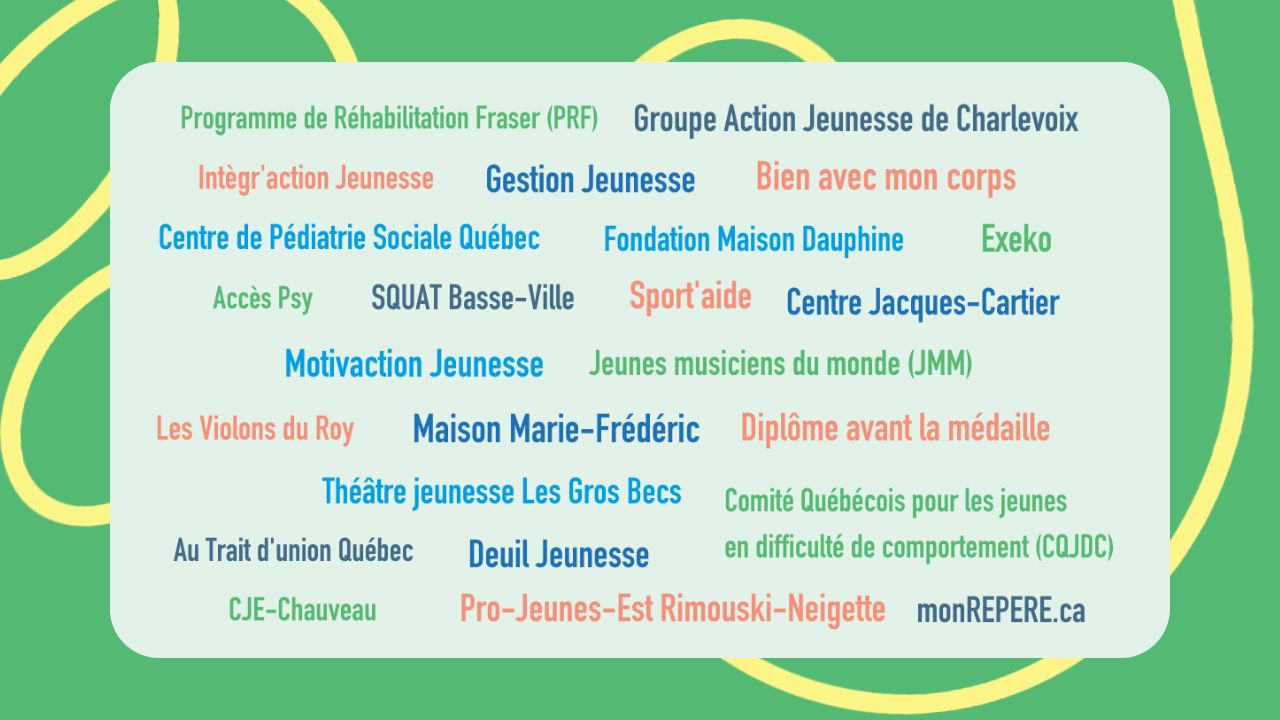About
Our impact
About
Our impact
CONCRETE SOLUTIONS FOR PREVENTING DISTRESS
Thanks to our many initiatives throughout the province, we’re making great strides in preventing psychological distress in young people. Each year, your donations help teens all over Quebec get the help they need.
See how you’re making an impact
Putting boots on the ground
Our flagship program, Partners for Life, is a way to speak to young people directly about mental health. Since 1998, we’ve been giving workshops in schools and connecting teens and young adults experiencing psychological distress to professional resources in their area.
Discover our workshop19706 teens 💪
have gone on to treat their distress, following our workshop
22 years 🎂
visiting Quebec schools
2490 teens 🏥
were hospitalized due to suicidal tendencies
IN 2022/2023




SINCE 1998
Helping to reduce the suicide rate in young people


Aimed at 12- to 13-year-olds, our workshop focuses on concrete skills that teens can adopt to maintain good mental health, which helps us prevent psychological distress earlier on. In 2019, we were able to reach 7000 more young Quebecers.
Learn more about the workshop
Giving strong support to organizations
$650,000 invested in 2023-2024
The foundation supports about 20 organizations that are working for the well-being of young people through innovative projects and programs. Dropping out of school, drug addiction, violence and social exclusion are some of the issues they cover. We work with them actively so that teens experiencing difficulty can get the comprehensive care they need.
Learn more about the organizations we support
Young people’s well-being
Better understanding for better care
To help our youth, we have to start by understanding them. In collaboration with the Institut national de la recherche scientifique (INRS) and the Observatoire Jeunes et Société (OJS), the foundation studied six essential dimensions affecting the well-being of 11- to 17-year-olds for each region in Quebec. The data collected helps schools, organizations and other stakeholders in the field to better understand the teens they interact with every day, and provide greater support for their individual challenges.
See our Portrait of youth well-being
